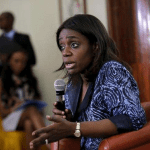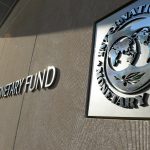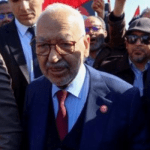Tunisian President Kais Saied has rejected “foreign diktats” from the International Monetary Fund (IMF), which has blocked discussions with the heavily indebted country over a bailout package.
Foreign diktats that will lead to more poverty are unacceptable in relation to the IMF, Mr Saied told reporters in the coastal city of Monastir.
The Tunisian government reached an agreement in principle in mid-October for a nearly $2 billion package from the IMF, but the deal has not been approved by the lender’s board, a key step to unlocking support from other international lenders.
The IMF has pushed Tunisia to remove state subsidies on basic goods, particularly fuel.
Tunisians have endured years of mounting economic pain, made worse by the coronavirus pandemic and the fallout from Russia’s invasion of Ukraine.
The IMF was originally expected to approve a bailout deal on 19th December, but that was delayed pending a Tunisian budget, which has since passed, and a law to stop banks charging excessive interest.
The IMF’s sister lender, the World Bank, effectively suspended new lending to Tunisia last month after Saied sparked accusations of racism with incendiary comments against migrants from sub-Saharan Africa.
A World Bank official said that meant the IMF talks, partly dependent on funding from the Bank, could now be pushed further down the line and that the IMF would face pressure not to approve a bailout.
The IMF has also called for legislation to restructure more than 100 state-owned firms, which hold monopolies over many parts of the economy and in many cases are heavily indebted.
Moves to cut state support for essential goods have proved disastrous in the past.
In December 1983, Tunisian authorities abolished subsidies on cereals, sending the price of bread, semolina and pasta soaring, and causing riots which left dozens dead.
Since ousting the government in July 2021, Saied has gained vast powers, dissolving parliament and pushing through a new constitution to replace the one enacted in 2014 during the country’s Arab Spring revolution.
Saied, 65, was elected to a five-year term in 2019. When asked on Thursday whether he would run for re-election in next year’s elections, he said it was “too early to say.”














